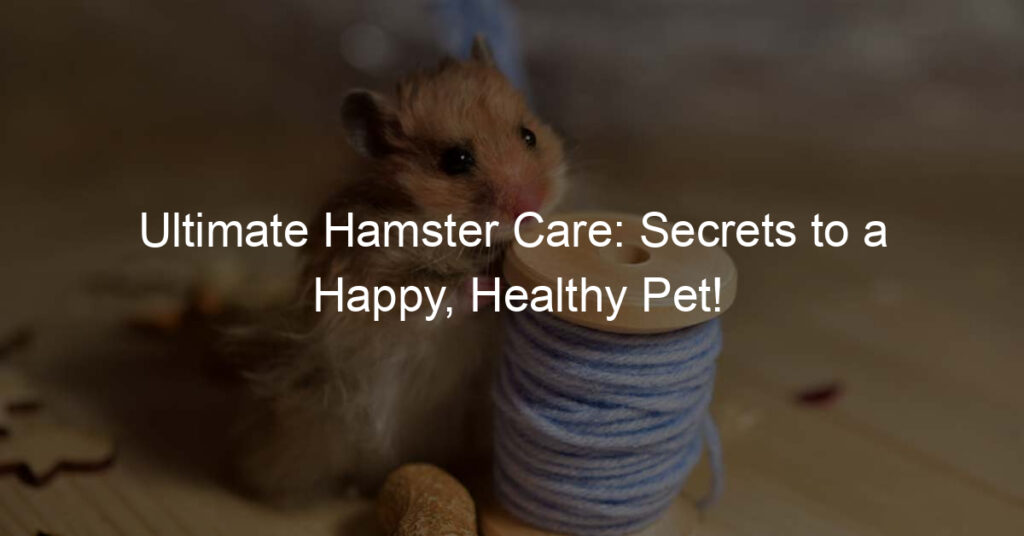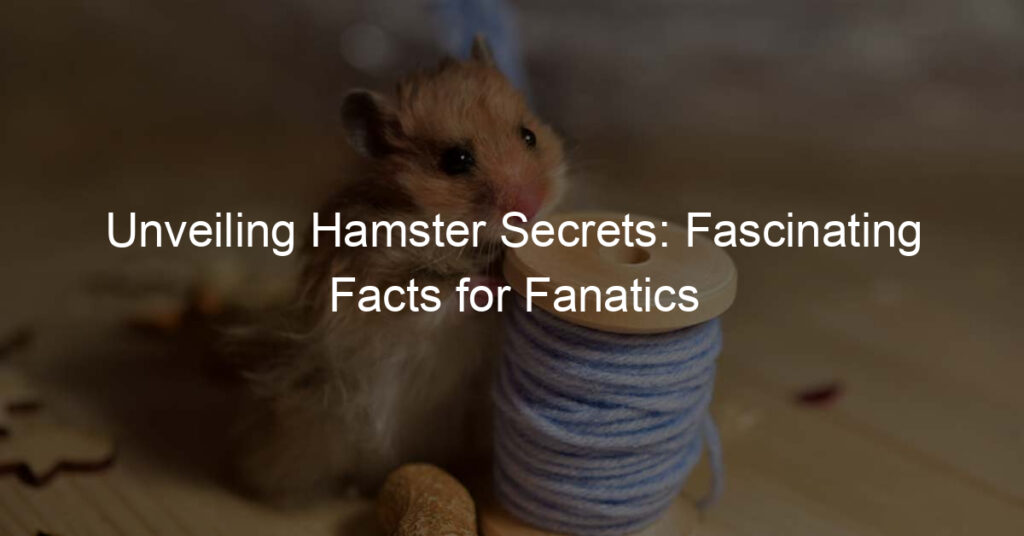Hamsters are adorable and popular pets, often sparking curiosity among their owners about what they can safely eat.
One question that frequently comes up is whether hamsters can eat cheese. Cheese, while a delicious treat for humans, might not be suitable for our furry friends.
It’s essential to know what types of cheese, if any, are safe for hamsters and how it may affect their diets.
As omnivores, hamsters can consume a variety of foods that make up their diet, including seeds, grains, and occasional insects.
It is important to understand that while cheese can be a part of a hamster’s diet, it should only be given in moderation and with specific guidelines in mind.
This article focuses on the relationship between hamsters and cheese, potential health risks, and how to properly feed cheese to your hamster for a safe and enjoyable treat.
Key Takeaways
- Hamsters can eat cheese, but it should be given in moderation
- Choose suitable cheese types and avoid processed cheese products
- Feeding cheese to hamsters requires following proper guidelines to ensure their health.
Can Hamsters Eat Cheese?
Hamsters, being small and lovable rodents, have a diverse diet as they are omnivores. This means they consume both plant material and animal protein.
Cheese can be an occasional part of a hamster’s diet, as it provides some protein. However, it is crucial to offer cheese in moderation and ensure the cheese is safe.
Understanding the Hamster Diet
Hamsters’ diet should mainly consist of commercial pellets, which provide the necessary nutrients for their health. Along with pellets, fresh fruits and vegetables should be given to hamsters regularly, in appropriate amounts.
Now, when it comes to cheese, it is possible to provide your hamster with small amounts occasionally. Cheese does have some health benefits and can be a source of protein for them.
Nevertheless, too much cheese can be harmful to a hamster’s health. Avoid aged cheese, as it may cause digestion issues. Stick to milder, low-fat varieties.
When feeding your hamster cheese, make sure to keep the portion small, about the size of a pinky fingernail. Offer it no more than once a week as an occasional treat to prevent any potential health issues.
Keep an eye on your hamster to see if they are showing any adverse reactions after consuming cheese.
Remember, the key to a healthy hamster diet is to offer a variety of suitable foods, including pellets, fruits, vegetables, and occasional treats like cheese.
By doing so, you will ensure your hamster gets the nutrients they need while enjoying a diverse and delicious menu.
Types of Cheese and Hamsters
In this section, we will discuss the various types of cheeses that are safe and unsafe for hamsters. Cheese can be a tasty treat for hamsters when offered in moderation and in the correct type.
Yet, certain kinds of cheese may be harmful to your furry friend.
Safe Cheeses for Hamsters
Hamsters can enjoy a variety of safe cheese options.
Here are a few examples of cheeses that are generally safe for hamsters:
- Cottage cheese: This soft, unripened cheese is low in fat and high in protein. Offering small amounts occasionally can be a healthy treat for your hamster.
- Mozzarella: Another relatively mild cheese, mozzarella can be given in tiny portions as a treat. Make sure to choose unprocessed, natural mozzarella.
- Mild cheddar: In small amounts, mild cheddar can be a suitable cheese option for hamsters. Be careful not to overfeed your hamster with cheddar, as it can be higher in fat.
Unsafe Cheeses for Hamsters
Not all cheese types are safe for your hamster.
It is important to avoid feeding them the following cheeses:
- Blue cheese: This type of cheese is considered “moldy” and may be harmful to hamsters.
- Stilton: Similar to blue cheese, Stilton is another moldy cheese that should not be given to hamsters.
- Parmesan: This hard, aged cheese can be high in sodium, making it unsafe for your hamster.
- Ricotta: While not necessarily harmful, ricotta may be too rich for a hamster’s diet.
- Processed cheese: Any cheese labeled as “processed cheese food” should be avoided. This includes cheese-flavored snacks like cheese puffs.
It is crucial to know which cheeses are safe and unsafe for hamsters. Offering the right kind of cheese in moderation can be a fun and nutritious snack for your hamster.
Always monitor your hamster’s reaction to new foods, and consult a veterinarian if you have any concerns.
How Cheese Affects Hamsters
Impact of Cheese on Hamster’s Health
Cheese can have both positive and negative effects on a hamster’s health. On one hand, cheese is a source of protein, calcium, and minerals that can be beneficial for hamsters in small amounts.
Nonetheless, cheese is also high in fat, sodium, and calories, which can lead to health issues if given in excess.
When hamsters consume high-fat foods like cheese, they are at risk of developing obesity, weight gain, and even diabetes. Furthermore, the high sodium content in cheese can lead to an increased risk of dehydration, lethargy, and digestive issues, such as diarrhea.
Too much cheese can also cause a hamster to experience side effects like gas, loss of appetite, and digestive issues, which can further impact their overall health. Also, some cheese types may contain substances that could be toxic to hamsters.
Cheese as a Treat for Hamsters
Given the potential risks to a hamster’s health, it’s important to exercise caution when offering cheese as a treat.
In order to enjoy the benefits of cheese without the adverse side effects, owners should adhere to the following guidelines:
- Choose a low-fat cheese: Opt for a cheese variety with less fat content to minimize the risk of obesity or other health issues related to high-fat intake.
- Provide small amounts: Offer no more than a pea-sized amount of cheese at a time to avoid overloading your hamster’s system with fat or sodium.
- Monitor closely: Watch your hamster after they consume cheese for any signs of distress or discomfort, such as diarrhea or vomiting. Do not continue feeding if any issues arise.
- Ensure a balanced diet: Cheese should only be given as an occasional treat alongside a balanced and nutritious hamster diet to ensure their overall well-being.
By adhering to these guidelines, owners can ensure that their hamster enjoys a tasty cheese treat while minimizing the associated risks to their health.
Understanding Hamster Nutrition
Nutritional Requirements of Hamsters
Hamsters are omnivorous little creatures that require a well-balanced diet to maintain their health. Their diet should primarily consist of commercial hamster food, such as pellets or seed mixes, which provide most of their nutritional needs.
Further, hamsters also benefit from occasional fresh fruits, vegetables, and protein-rich treats such as insects or boiled eggs.
It is important to consider the nutritional content of any food given to hamsters.
In their diet, they need:
- Carbohydrates: Sources of energy for hamsters, found in grains, seeds, and some vegetables
- Proteins: Essential for growth and repair, found in insects, boiled eggs, and hamster food
- Fats: Necessary for absorption of vitamins and insulation, found in seeds and some nuts
- Vitamins & Minerals: Required for maintaining healthy bodily functions, derived from fruits and vegetables
When considering offering cheese as a treat to your hamster, it is essential to weigh the potential benefits and risks.
Cheese is a dairy product that contains proteins, fats, and minerals, but it can also be high in fat and salt, which can be detrimental to a hamster’s health if consumed in large quantities.
Alternatives to Cheese
Although hamsters might enjoy nibbling on cheese, there are healthier options to treat your furry little friend. Some nutritious alternatives to cheese include:
- Low-fat cottage cheese: Occasional small amounts of this dairy product can be given as a low-calorie, protein-rich treat
- Leafy greens: Spinach and broccoli are packed with vitamins and minerals that support hamster health
- Fruits: Bananas, apple slices, and other fruits in moderation can provide several essential nutrients and a natural source of sugar, but avoid overfeeding due to the high sugar content
- Timothy hay: Including this as part of their diet helps maintain their dental health and provides additional fiber
Always consult with a veterinarian before introducing any new food to your hamster’s diet, and observe their reactions to ensure they do not suffer from any adverse effects.
By understanding hamster nutrition, you can make informed decisions about feeding your hamster to ensure their well-being.
How to Feed Cheese to Your Hamster
Feeding cheese to your hamster can be a fun and enjoyable treat for them. But it’s essential to ensure the proper size and moderation when giving your furry friend this snack.
In this section, I will discuss the ideal size and frequency of cheese treats for your hamster.
Size and Frequency of Cheese Treats
When it comes to feeding cheese to your hamster, it’s important to keep the treat size small. A tiny piece, about the size of a grain of rice, is sufficient for a hamster.
Make sure to adjust the serving size depending on your hamster’s size, as smaller hamsters would require even smaller treats.
Cheese contains fat and salt; thus, it should be given to your hamster only as an occasional treat. To maintain their health and a balanced diet, it’s best to offer cheese no more than once a week.
Serving cheese more frequently might lead to health issues such as obesity and digestive problems.
In terms of cheese types, opt for low-fat and low-sodium options like mozzarella, string cheese, and soft goat cheese. These choices provide a better balance of nutrients, making them safer for your hamster.
Avoid feeding aged cheeses or any with strong flavors, as they can harm your hamster’s digestion.
To feed cheese to your hamster, simply place the tiny cheese piece in their food dish or hand it over to them using your fingers or tweezers.
Always make sure to wash your hands before and after handling the cheese to ensure the safety and cleanliness for both you and your hamster.
Feeding cheese to your hamster can be done safely by following proper size and moderation guidelines.
Remember to choose low-fat and low-sodium cheese varieties, serve them in small amounts, and limit the frequency to protect your hamster’s health.
Potential Health Risks
Common Health Issues in Hamsters Eating Cheese
Although cheese can be a tasty treat for your hamster, it’s essential to be mindful of the potential health risks associated with feeding them this food in large amounts or too frequently.
Here, we discuss some of the common health issues that might arise when hamsters consume cheese.
Obesity and diabetes: The high-fat content in cheese can lead to obesity in hamsters, which is closely associated with diabetes. It is crucial to offer cheese in moderation to prevent these health problems.
Sodium and dehydration: Cheese contains a significant amount of sodium, which can lead to dehydration in hamsters if consumed in large quantities. It is essential to ensure your hamster drinks plenty of water when offering cheese as a treat.
Digestive issues: Some hamsters might experience digestive issues such as vomiting or diarrhea after eating cheese or other dairy products. If you notice any of these side effects, it’s best to avoid offering cheese to your hamster in the future.
Lethargy and loss of appetite: Consuming too much cheese can cause hamsters to feel lethargic and lose their appetite due to the high-fat content. To keep your hamster energetic and healthy, it is best to offer only small amounts of cheese as an occasional treat.
Chocking hazard: Finally, it is crucial to note that cheese can pose a choking hazard if not properly prepared for your hamster. To avoid this risk, be sure to cut the cheese into small, pea-sized pieces before offering it to your pet.
In conclusion, while hamsters can enjoy cheese, it’s essential to be aware of potential health risks and always offer this food in moderation to ensure the well-being of your furry friend.
Conclusion
In summary, hamsters can indeed eat cheese as long as it is given in small amounts and only as a treat. Cheese, being a good source of calcium and protein, can be beneficial for hamsters when fed in moderation.
Regardless, due to its high-fat content, excessive consumption of cheese can lead to potential health problems.
It should be noted that hamsters have different levels of tolerance when it comes to dairy products; some may digest cheese well, while others might experience lactose intolerance, leading to symptoms like vomiting and diarrhea.
As a responsible hamster owner, it is essential to closely observe your pet’s reaction when introducing cheese to their diet for the first time.
Opt for plain, unseasoned cheeses like mozzarella when offering cheese to your hamster, and always cut it into small, bite-sized pieces.
Remember that the primary source of nutrition for your hamster should still be their regular hamster food, with treats like cheese reserved for special occasions or rewards.
By following these guidelines, you can ensure that your hamster enjoys a tasty treat while maintaining optimal health.
Frequently Asked Questions
Is cheese safe for hamsters to consume?
Yes, cheese is generally safe for hamsters to consume, but only in small quantities. Cheese should not be a part of their regular diet, as it can be high in fat and salt, which can be harmful to hamsters when consumed in large amounts.
What types of cheese can hamsters eat?
Hamsters can eat specific types of cheese that are low in fat and salt. Some examples include low-fat cottage cheese and mozzarella. It’s essential to select the appropriate kind of cheese for your hamster to ensure their health and well-being.
Are there any cheese alternatives for hamsters?
If you’re looking for alternatives to cheese for your hamsters, consider providing them with fresh fruits and vegetables like carrots, broccoli, cauliflower, and apples.
These provide essential nutrients and are healthier options for your hamster’s diet.
How often can hamsters have cheese?
It is recommended that cheese be given as an occasional treat only. This means you can provide a small piece of cheese to your hamster every once in a while, but it should not be a regular part of their diet.
Are cheese puffs or cheese balls okay for hamsters?
No, cheese puffs and cheese balls are not suitable for hamsters. These snacks tend to be high in salt and artificial additives, which can be harmful to your hamster’s health.
It is best to stick to natural, healthier options like the low-fat cheeses mentioned earlier or fresh fruits and vegetables.
Can hamsters eat dairy products besides cheese?
Hamsters can consume some dairy products, such as yogurt, as an occasional treat. However, it’s essential to ensure the yogurt is plain and unsweetened, as hamsters should not consume added sugars.
As always, moderation is key, and dairy products should not be a regular part of your hamster’s diet.








